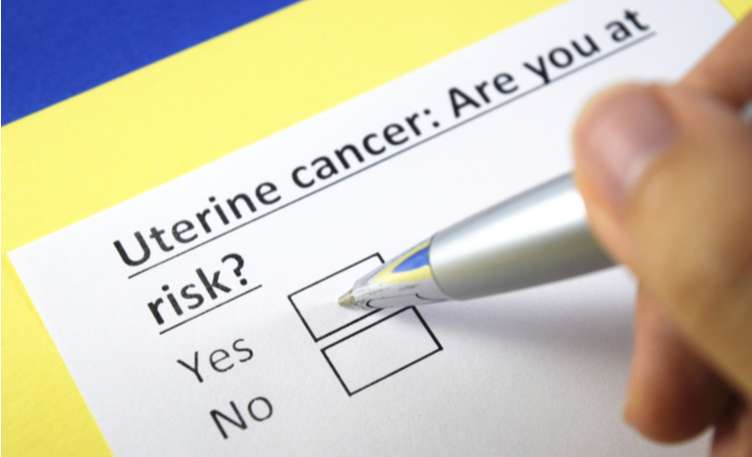Are Women Smokers at an Increased Risk of Uterine & Gynaecological Cancers?

Consumption of cigarettes and other tobacco-based substances is known to cause fatal harm to the health of both men and women. Amongst all the illnesses smoking causes, cancers are one of the deadliest and most life-threatening ones. Smoking and tobacco-based substances increase the risk of various cancers in men and women like lung, throat, bladder, mouth, and oesophagus. Though smoking is the leading cause of lung cancer in either gender, it may leave you surprised that smoking also poses a potential risk of gynaecological cancers in women.
Though smoking socially or occasionally with friends is now considered modern by many, its hazardous effects on one’s health can’t be overlooked. Cigarettes and tobacco are laden with poisonous elements that are proven to weaken the immune system in your body. In the absence of a strong immune system, cancer cells can easily attack and spread in your body. Since a weaker immune system is unable to kill the cancer cells, they may easily spread to the other organs of the body causing irreversible organ damage.
Female Smokers & Uterine Cancer
Uterine cancer is one of the most common and deadliest gynaecological cancers across the globe. Female smokers are at a significantly higher risk of developing uterine cancer as the harmful and toxic chemicals and other substances in tobacco end up damaging the DNA cells of the uterus. When the DNA in the cells inside the uterus mutate, it ends up affecting and disabling the core functions that are responsible for regulating cell division and growth. This condition leads to uterine cancer. In most uterine cancer cases, it has been observed that malignant tumor cells develop inside the endometrium, the lining of the uterus.
Females who smoke actively on a regular basis are at a potentially higher risk of uterine cancer compared to females who are teetotallers. Besides smoking, there are certain lifestyle factors too responsible for the growth of uterine cancer and increase the risk quotient too. Such factors include poor and unhealthy dietary habits, lack of physical activity, and stress. Uterine cancer is more common in peri-menopausal women than menstruating ones.
Here are some of the uterine cancer risk factors that increase the risk quotient:
● Smoking
● Poor & unhealthy dietary pattern
● Sedentary lifestyle
● Age
● Late Menopause
● Menstruation from an early age
● No pregnancies
● Obesity
● Infertility
● Metabolic syndrome
● Thickening of the endometrium, also called endometrial hyperplasia
● Polycystic Ovarian Syndrome (PCOS)
Uterine Cancer Symptoms
Here are some of the common signs and symptoms of uterine cancer in women:
● Abnormal vaginal bleeding in menopausal women (post-menopausal bleeding)
● Irregular bleeding in premenopausal women / Irregular bleeding
● Unusual vaginal discharge not related to menstruation
● Pain & discomfort in the abdomen and pelvis
● Enlarged or bulky uterus
● Pain while urinating
● Painful sexual intercourse
● Sudden weight loss without trying
How is Uterine Cancer Diagnosed?
Based on the signs and symptoms you’re experiencing; your treating doctor will order a complete physical examination along with certain diagnostic tests to reach a diagnosis.
Here are the tests required to establish uterine cancer diagnosis:
● Pelvic examination
● Certain relevant imaging tests like Ultrasound and MRI Pelvis
● Hysteroscopy
● Dilatation & Curettage (D & C)for endometrial bleeding
● Blood work
The results from blood work, imaging tests, and other tests are then evaluated in the light of the symptoms to reach a diagnosis.
Uterine Cancer Treatment
Whenever a patient with confirmed signs of uterine cancer symptoms is presented in the hospital, the first treatment option is to resort to surgical removal of the uterus, fallopian tubes, ovaries, and associated draining lymph glands. After the surgery is successfully performed, radiation therapy may be required. Based on the stage of cancer and other medical factors, radiation therapy is advised that helps kill the cancer cells with powerful energy beams and prevents recurrence.
Other treatment options for uterine cancer include chemotherapy that follows the use of strong drugs and relevant hormone therapy that ends up blocking such hormones that foster the growth of cancer cells. Targeted therapy is also advised in specific cases where the drugs are administered to target the specific cancer cells followed by immunotherapy in certain advanced cases.
Quitting Smoking
The first step in preventive care against uterine cancer is to quit smoking immediately. Even though you’re not an active smoker, it is always better to stay away from passive smoking and consumption of tobacco-based products. Even if you’ve smoked for many years, if you quit smoking now, there are many short and long-term health benefits you can take advantage of.
Not just uterine cancer but early detection and timely prevention hold true for all other forms of cancer. If you notice any of the above uterine cancer signs and symptoms, it is better to speak to a doctor.






